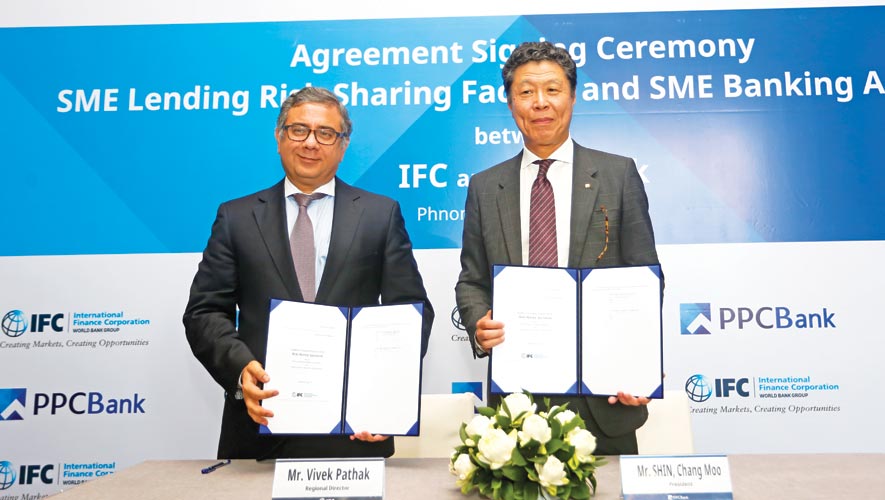2019 promises to be an exciting year indeed. Since 2017, Cambodia’s nascent fintech sector has quickly grown and developed, and this has come alongside the continued growth and development of fintech and financial services in the Kingdom in general. As more Cambodians expand their understanding of digital services beyond Facebook and seek ways to use their smartphones in more aspects of daily life, the room for digital services in the country is expanding; whether QR code payments, cashless money transfers between e-wallets and bank accounts, purchasing tickets, online loyalty systems, mobile phone top ups, utility and insurance bill payments, or ride-hailing payments, the number of options available for Cambodians to pay for goods and services with only their phone will continue to grow rapidly. Integration with the formal financial sector remains a key position for Pi Pay, and we expect this to be seen industry-wide in 2019.
For the latest Cambodian Business news, visit Khmer Times Business
By partnering with established banks and MFIs across the country, Cambodians can benefit from increased access to financial services. City residents can send money to family in the provinces, who can then pay for goods at the market or buy a bus ticket or top up their phone, all without the need for cash; it is a truly life changing development for rural communities, and we are proud to continue to play a role in boosting the National Bank of Cambodia (NBC)’s financial inclusion efforts. One area of growth for the fintech sector in 2019 will be in ride-hailing. While there are a large number of apps already, I think the main two – Grab and Passapp – will adapt their offerings to better support local needs, and also to cater for the growing number of Chinese visitors. Indeed, how local companies react to the Chinese market, and their familiarity of fintech giants like Alipay, WeChat and UnionPay, will be interesting to watch in 2019 as we see more and more hotels, restaurants and entertainment providers accepting Chinese payment options.
Not all of these are through officially authorised payment providers however, and I hope in 2019 there is greater understanding of the importance of only using authorised providers for the safety and security of account data, and for tax compliance.
The role that payment providers such as India’s PayTM, China’s Alipay and WeChat, GCash in the Philippines, and Wave Money in Myanmar play in the daily lives of users across Asia is amazing, and it is the dream of Cambodia’s fintech sector to be as popular and widely used. While that is still a long way off in Cambodia, we are likely to see the first inclusive “superapps” built for Cambodians in 2019, offering shopping, saving, lifestyle and social media functions, all in one place. This year will surely see more players entering the Cambodian market. So long as they are professional and guarantee the safety and confidentiality of their users’ data, then any newcomers are bound to raise the quality of digital offerings, and give people across the country more reason to try using these digital services. I think this provides the perfect opportunity for an inclusive Cambodian digital and fintech association to fully advocate for all areas of the industry.
There are a number of laws and regulations being drafted and debated that will affect startups and fintech companies including the long-anticipated e-commerce law, and both government and private sector will benefit from closer understanding and ties that a well-run association brings. It would also allow for the support of the NBC and relevant government ministries in their financial inclusion efforts and the digitalisation of public services, both important areas that Cambodia must develop in 2019 to better meet the needs and expectations of citizens.
As you can see, 2019 promises to offer a lot for Cambodia’s fintech sector, and by extension, for the country as a whole. The cashless revolution that is sweeping much of the world will not pass Cambodia by; and the benefits that this brings in terms of boosting transparency, efficiency and access to services will increasingly impact more people across the country.
This year will be the year that digital payment and financial services can truly be said to be accessible in every province, and everyone should be very excited about this – I know I am. CapCam
Tomas Pokorny
CEO, Pi Pay




